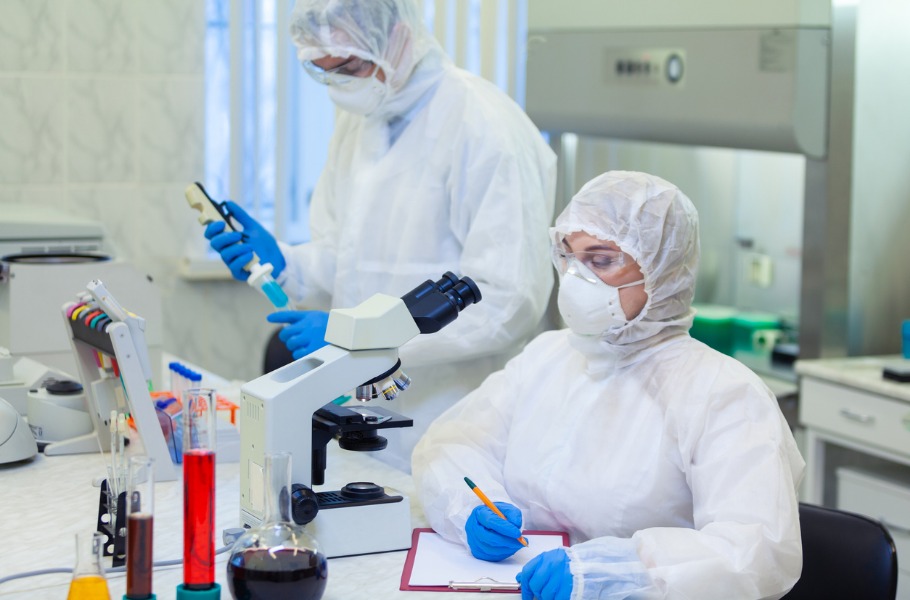
Scientists dread layoffs as TN drags feet on taking over viral research labs

The Tamil Nadu government’s reluctance to take over Viral Research and Diagnostics Labs (VRDL) in the state has put the future of many scientists in a jeopardy. When the labs were set up in 2010, the Centre and the state government had agreed that the latter would take over the project after five years, but the same hasn’t happened even though three of the nine labs have completed 10 years. Employees fear the Centre, which not provides funds every five years now, may stop it anytime, rendering thousands of scientists, researchers and technicians jobless.
The VRDLs were set up by the Centre in 2010, following the Swine Flu outbreak in the country in 2009. During the outbreak, the country didn’t have enough laboratories except the National Institute of Virology (NIV) to study, test and diagnose the virus. To fill the gap, the Centre formed 90 VRDL centres across the country.
Also read: After a long lull, vaccination picks up in Tamil Nadu
One of the first centres was set up in Tamil Nadu. At nine, the state has the highest number of VRDL centres in the country. While Chennai has two centres, the rest are situated in Coimbatore, Madurai, Tirunelveli, Salem, Theni, Villupuram and Tiruvarur. Each centre has five to seven employees. They are graded into scientists, research assistants and lab technicians.
“In Tamil Nadu, there are 221 COVID-19 testing labs. Till June 14, they have carried about 3 crore tests. Out of these, the VRDL centres alone carried out 75 lakh tests or 25 per cent of the total tests. Moreover, we don’t only conduct COVID-19 tests, but also diagnose around 32 types of viruses,” said a senior scientist based in Chennai.
Besides testing and diagnosis, these labs are entrusted with major tasks like epidemiology, quality control, virus culture, validation of kits, viral genomics, genome sequencing and providing training to other laboratories.
“While setting up the labs, a MoU was signed between the Centre and the state where it was agreed that the latter will take over the labs after completion of its first five years. Out of nine labs, three have completed more than 10 years. However, still the state government hasn’t come forward to take them under its supervision. After five years, the state government should have borne the expenses for the labs and the manpower. But that too has not been done. Only the Centre provides the money every five years and extends the services of these labs,” the scientist said.
Employees fear the funding by the Centre may stop any time and they may lose their job if the labs are not taken over by the state government. As of now, the state government is only giving the consumable cost for COVID-19 testing to the labs, the scientist said.
At a time when Tamil Nadu is highly appreciated for its medical infrastructure, losing such kinds of labs that provided invaluable services to the state during epidemics like Swine Flu, Chikungunya, Dengue and COVID-19 will be seen as a regressive step, he said.
“In all of the nine labs, there are about 45 employees. It will be unbelievable if the state says that it is unable to pay us. All these employees are well trained and have four to 10 years of experience. If there is a drain in these labs, it will be hard to find well-trained candidates. Other states don’t seem as worried as us as their labs still have time to complete the first five years. But in Tamil Nadu, when we are fiercely battling against COVID-19, the services of these labs are indispensable. So they must continue to operate,” said the scientist.
When asked why the VRDL centres despite their potential are still not able to increase genome sequencing in the state, the scientist said that though the personnel in these labs are trained to interpret the sequencing, they do not have the required infrastructure.
“In King Institute in Chennai, they have only recently set up a sequencing facility, but they cannot study Sars COVID sequencing since the genome length of COVID-19 is 30 KB. We have the facility only to study 3,000 to 4,000 units. We have been told that similar sequencing facilities will be set up at DPH and ICMR in Chennai soon. When VRDL centres get such facilities, we will be able to study about 3,000 genome sequencing per day,” the scientist said.
Many employees rue that the VRDLs are not being utilised to their full potential and have been reduced to mere diagnostic centres even though they are meant to study viral strains.
“Of the nine VRDLs in our state, two are state labs, or referral labs in other words. Their duty is to study about the strains of the viruses. But they are conducting diagnosis such as collecting patient samples and testing whether it is positive or negative,” said a microbiologist at one of the VRDLs.
Also read: Lockdown sinks Tamil Nadu’s rural workers deep in debt
“A lot of people think we only conduct virus related research. But our purview is much bigger. Our support is needed, more so in the times of biological wars and chemical poisoning,” she added.
The Federal tried to reach the state health secretary for comments, but didn’t receive any response.

